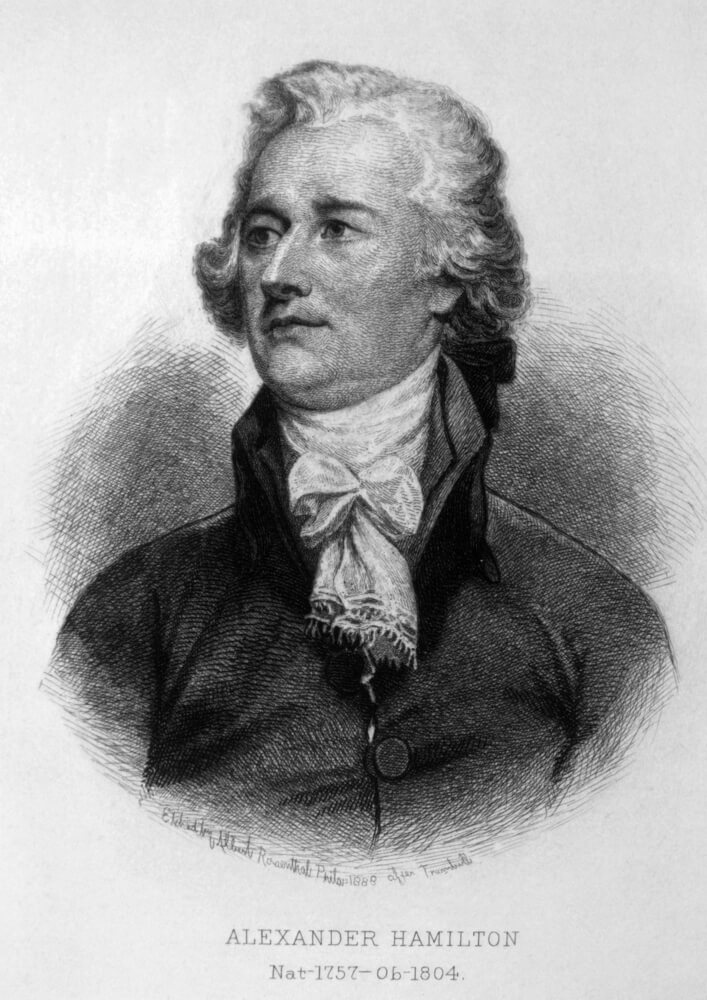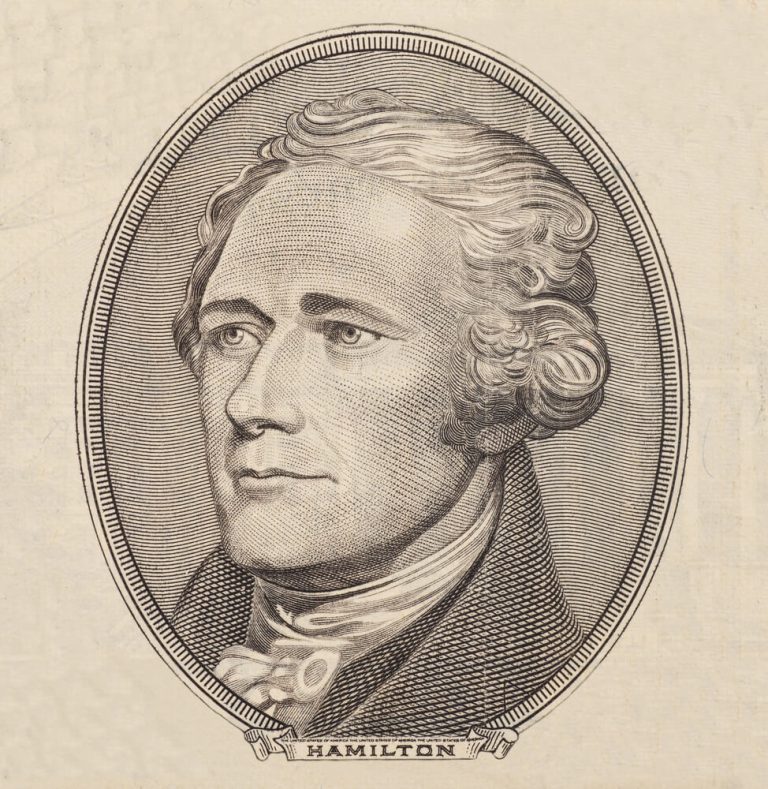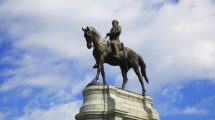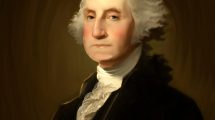Alexander Hamilton, a founding father of immense influence, rose from humble Caribbean beginnings to profoundly shape the United States. Serving as an aide-de-camp to George Washington during the Revolutionary War, his strategic brilliance led to significant political achievements, including contributions to the U. S. Constitution and The Federalist Papers. Despite his tragic duel with Aaron Burr, Hamilton’s legacy endures through modern economic policies and cultural phenomena like Broadway’s “Hamilton.” This biography explores how he helped forge a nation while leaving a lasting impact on its future.
Who Was Alexander Hamilton?
Alexander Hamilton was a pivotal figure in American history, known for his significant contributions as one of the Founding Fathers of the United States. Born on January 11, 1755, in the Caribbean island of Nevis, Hamilton’s early life was marked by hardship and adversity. Despite these challenges, he rose to prominence through his remarkable intellect and ambition.
Hamilton’s biography is a testament to his role in shaping the nascent nation. As an influential statesman and visionary leader, he played a crucial role in drafting the Constitution and was instrumental in its ratification through his contributions to The Federalist Papers. His vision for America included a strong central government and an economy driven by industry and commerce.
As the first Secretary of the Treasury under President George Washington, Hamilton laid the financial foundation of the United States by establishing a national bank, implementing tariffs to protect budding industries, and creating a system for managing national debt. His policies not only stabilized America’s finances but also set it on a path towards economic growth.
Hamilton’s life story is also marked by personal controversies and political rivalries, most notably with Thomas Jefferson and Aaron Burr. Despite these conflicts, his legacy endures as an architect of American governance whose ideas continue to influence economic policy today.
In sum, Alexander Hamilton’s biography reveals him as a dynamic force in American history, a founding father whose visionary ideas helped shape the nation’s future while overcoming immense personal obstacles along the way.
Early Life and Background (The Rise from Humble Beginnings)

Alexander Hamilton’s early life and background are a testament to his remarkable rise from humble beginnings. Born on the island of Nevis in the Caribbean around 1755, Hamilton’s childhood was marked by hardship and adversity. His family background was fraught with challenges; his father, James Hamilton, abandoned the family when Alexander was young, leaving his mother, Rachel Faucette Lavien, to raise him and his brother under difficult circumstances.
Despite these obstacles, Hamilton’s early years in the Caribbean played a crucial role in shaping his future. The young Hamilton showed an incredible aptitude for learning and a voracious appetite for knowledge. His education began informally at home but soon expanded as he attended a local school where he quickly impressed teachers with his intelligence and determination.
Tragedy struck when Rachel died of illness when Alexander was just 13 years old. This event left him orphaned and financially destitute. However, it also set the stage for friends and mentors who recognized his potential to step in and support him. They pooled resources to send him to New York City for further education.
Hamilton’s journey from an impoverished childhood in the Caribbean to becoming one of America’s Founding Fathers is a story of resilience and ambition, a narrative that underscores how education can be a powerful catalyst for change even amidst adversity.
The Revolutionary War (Hamilton’s Role in America’s Fight for Independence)
The Revolutionary War was a defining moment in American history, and Alexander Hamilton played a crucial role in the fight for independence. As a young immigrant from the Caribbean, Hamilton’s intellectual prowess and leadership skills quickly distinguished him among the ranks of the revolutionaries. His military career took a significant turn when he became an aide-de-camp to George Washington, serving as one of his most trusted advisors.
In this capacity, Hamilton was instrumental in shaping strategic decisions and facilitating communication between Washington and other military leaders. His ability to draft eloquent letters and reports helped maintain morale among troops and secured vital support from Congress. Beyond administrative duties, Hamilton’s strategic insights were invaluable during key battles, including the decisive victory at Yorktown.
Hamilton’s contributions extended beyond the battlefield; his vision for a strong centralized government laid the groundwork for America’s future governance. His experiences during the Revolutionary War informed his later work as one of the Founding Fathers, influencing both policy-making and constitutional development.
Through his service as an aide-de-camp to George Washington and his broader military career, Alexander Hamilton left an indelible mark on America’s struggle for independence, a testament to his enduring legacy in shaping a new nation.
A Founding Father Shaping a Nation (Hamilton’s Political Career and Achievements)
Alexander Hamilton, one of America’s most influential Founding Fathers, played a pivotal role in shaping the nation’s political landscape. His contributions to the United States Constitution and his authorship of the Federalist Papers are hallmarks of his enduring legacy.
Hamilton’s involvement in drafting the Constitution was instrumental. As a staunch advocate for a strong central government, he argued passionately for its ratification. His vision was rooted in ensuring that the new nation had a robust framework to support economic growth and maintain order. Hamilton’s contributions to this foundational document laid the groundwork for many aspects of modern American governance.
Perhaps even more significant was Hamilton’s role as one of the primary authors of the Federalist Papers, alongside James Madison and John Jay. These essays were crucial in persuading states to adopt the Constitution by explaining its principles and benefits in clear, compelling terms. Through these writings, Hamilton articulated key ideas about federalism and checks and balances that continue to influence American political thought today.
As the first Secretary of Treasury under President George Washington, Hamilton’s achievements extended beyond theory into practical governance. He established a national bank, implemented tariffs to protect budding industries, and created strategies for managing national debt. All measures were designed to stabilize and grow America’s fledgling economy.
In summary, Alexander Hamilton’s political career is marked by profound contributions that have left an indelible mark on American history. His work on the Constitution, his eloquent defense through the Federalist Papers, and his visionary economic policies as Secretary of Treasury collectively underscore his vital role in shaping a nation that continues to thrive centuries later.
The Duel with Aaron Burr (Tragic End to a Prominent Figure)
The Burr-Hamilton duel, a fateful confrontation that took place on July 11, 1804, stands as a notorious moment in American history. This tragic event marked the culmination of a long-standing political rivalry between two of the nation’s most influential figures: Alexander Hamilton and Aaron Burr. The discord between them was fueled by years of political tension and personal animosity, which eventually spiraled into an irreversible decision to settle their differences through a duel.
Held at Weehawken, New Jersey (a popular dueling ground of the era) the encounter was steeped in secrecy and solemnity. Both men arrived with their seconds to oversee the proceedings and ensure adherence to the code duello. The duel itself was brief but decisive; Hamilton’s shot went awry while Burr’s struck true, inflicting a mortal wound upon Hamilton.
The death of Alexander Hamilton sent shockwaves through the young nation. As one of its Founding Fathers and chief architects of its financial system, his loss was deeply felt across political lines. For Aaron Burr, however, victory came at an immense cost. Although he survived physically unscathed from the duel, his reputation suffered irreparable damage-forever branding him as “the man who killed Alexander Hamilton.”
This tragic ending underscores not only the personal consequences for both men but also serves as a poignant reminder of how unchecked rivalries can lead to devastating outcomes. The Burr-Hamilton duel remains emblematic of how political disagreements can tragically transcend into personal vendettas with lasting repercussions on history’s stage.
The Legacy of Alexander Hamilton in Modern America
Alexander Hamilton’s legacy continues to profoundly influence modern America, weaving through the fabric of both cultural and economic spheres. One of the most visible testaments to his enduring impact is the Broadway musical “Hamilton,” which has captivated audiences worldwide by bringing his story to life with a contemporary twist. This cultural phenomenon not only reinvigorated interest in American history but also sparked discussions about diversity and representation, as it features a diverse cast portraying historical figures.
Beyond the stage, Hamilton’s influence is deeply embedded in America’s economic foundation. As one of the nation’s Founding Fathers and its first Secretary of the Treasury, he laid down principles that continue to guide economic policy today. His vision for a strong central government with a robust financial system led to the establishment of institutions like the Bank of New York and policies that supported industrialization and commerce. These foundational elements have been pivotal in shaping America’s economic landscape, promoting stability and growth over centuries.
In today’s context, Hamilton’s impact is evident in ongoing debates about fiscal policy and government intervention in the economy. His belief in federal power as a unifying force remains relevant as policymakers navigate complex challenges such as national debt management and financial regulation. Thus, Alexander Hamilton’s legacy endures not only through artistic representation but also through enduring economic principles that continue to shape modern America.
Reflecting on the Enduring Influence of Alexander Hamilton’s Life and Work
As we draw our exploration of Alexander Hamilton’s life and work to a close, it becomes clear that his influence continues to resonate throughout American history and modern governance. Hamilton’s contributions as a Founding Father, including his role in authoring the Federalist Papers and establishing the financial system of the United States, laid foundational principles that still guide economic policy today. His vision for a strong centralized government has shaped the nation’s development, influencing debates on federalism and states’ rights.
Moreover, Hamilton’s legacy extends beyond politics into cultural realms. His life story has inspired countless works of art and literature, most notably the acclaimed musical “Hamilton,” which has brought renewed interest in his achievements to new generations. The themes of ambition, resilience, and innovation that characterized his life continue to inspire individuals striving for progress in various fields.
In reflecting on Alexander Hamilton’s enduring influence, we recognize not only his pivotal role in shaping early America but also how his ideas continue to inform contemporary discussions about governance, economics, and identity. His life’s work serves as a testament to the enduring power of visionary leadership and its capacity to shape history long after one’s time.


